How good is your French language? You cannot afford to miss one exam to know your current level. That’s DELF and DALF, the most famous French proficiency tests.
There has been a surge in demand for French language learners recently. The reasons vary, from career and academic pursuits to study abroad and personal interests.
So naturally, this has increased the popularity of these two exams.
This French test measures your knowledge and identifies your level. As you progress, you learn and improve.
This post has everything you need to know about DELF and DALF. It covers test dates, benefits, levels, test structure, scoring system, centers, fees, eligibility, how to prepare, and much more.
Let’s get started!
Table of Contents
What are the DELF and DALF Tests?
The DELF is an acronym for Diplôme d’Études en Langue Française. In English, it refers to the “Diploma in French Language Studies.”
DALF stands for Diplôme Approfondi de Langue Française. It means the “Diploma in Advanced French Language” in English.

The French Ministry of Education issues these two official diplomas to certify proficiency in the French language.
The DELF & DALF are consistent with the international standards for test development. E.g., the Common European Framework of Reference for Languages (CEFRL) and the Association of Language Testers in Europe (ALTE).
These tests are internationally recognized. Both are commonly used to measure the language expertise of non-native speakers.
By passing the examination, you’ll receive an official diploma that certifies your degree of competence in the language. Both ensure that you have reached a certain level of French skill.
Who conducts the exam?
The Ministry of Education of France, in association with the Centre International d’études pédagogiques (CIEP), awards DELF and DALF diplomas.
Authorized exam centers worldwide conduct these exams. They have affiliations with educational institutions like Alliance Française, French embassies, consulates, or other approved language testing organizations.
Alliance Française is a global organization that operates on behalf of the French Ministry of Foreign Affairs and the National Education.
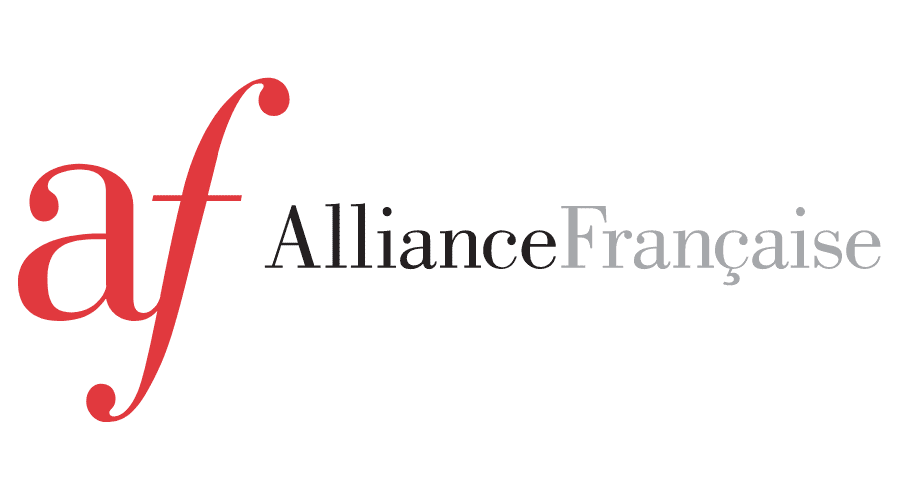
The government of France started AF in 1883 to promote the study and teaching of the French language and culture. Since then, the DELF exams have improved dramatically.
Recognition & Acceptance
DELF and DALF are the most prestigious French ability tests for non-native speakers. These are two official diplomas certifying the candidate’s mastery and competence in French.
The French government institutions honor and officially recognize different variants of DELF.
Government agencies and educational institutions highly trust both exams. Companies and businesses also accept it in various contexts as official proof of proficiency in French.
To sum up, both diplomas are acknowledged and accepted across the globe.
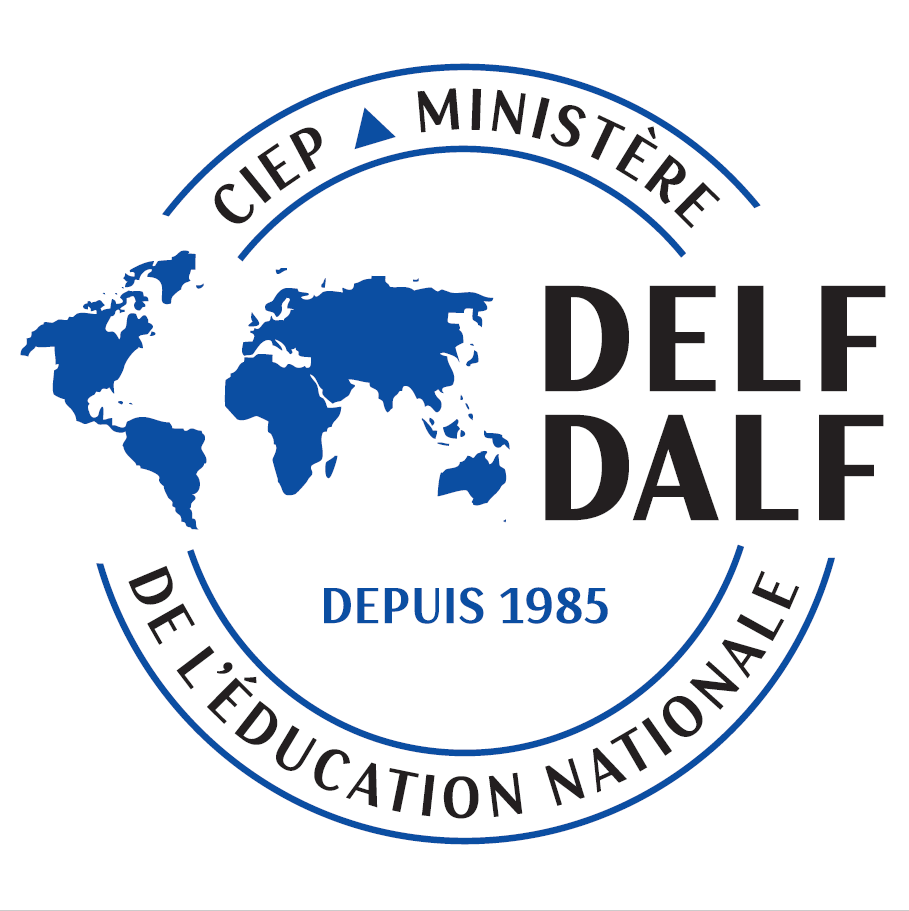
Importance and Advantages of taking DELF
There are many benefits of taking different DELF exams.
For those who have been learning French for some time, assessing their current level—even just a rough idea—is helpful. It can help pinpoint areas for improvement.
Working on these shortcomings can lead to a sense of achievement. It can motivate you to continue learning the language with lots of self-assurance and a clear picture.
DELF and DALF are connected with CEFR language guideline levels, ranging from A1 to C2. This makes it easier to interpret the results.
These diplomas are recognized and accepted by almost all organizations and corporations. This is proof of French language fluency. It can enhance your CV and improve your job prospects.
DELF and DALF diplomas are valuable in diplomacy and translation work requiring French, tourism, international business, and more industries.
Are you interested in studying, working, or settling abroad in French-speaking countries?
While not always mandatory, having a DELF certification can still be highly beneficial. It can help you gain extra points or increase your chances of acquiring a study visa or work permit.
Many educational institutions accept it as evidence of French skills. Students can submit these diplomas as part of their applications to meet language requirements for admission.
It will also boost your chances of university admission, finding work, or moving to Francophone countries like France, Canada, Belgium, etc. It can help you with immigration and visa applications.
The DELF and DALF certification never expires. As an outcome, you can use it forever after passing the exam. It can be an asset for the rest of your life.
The test is worth your time and effort because of its usefulness. There is no reason not to take it, as it has only pros and no cons.
Everything About French DELF and DALF exam
There are many French tests. Yet, of all the options, DELF and DALF are the most sought-after exams for non-native French speakers worldwide.
Let’s find out everything about it!

What is the difference between DELF and DALF?
The French Ministry of Education offers DELF and DALF diplomas to certify the French language mastery of non-native speakers. Both are equally admitted and serve as valuable credentials.
While they share similarities, they differ in terms of levels and purposes.
DELF has four levels, each linked to a level on the CEFR. It comprises A1 and A2 (Beginner) and B1 and B2 (Intermediate).
Conversely, DALF comprises only two levels: C1 (Advanced) and C2 (Mastery).
DELF assesses general French ability for various purposes. At the same time, DALF focuses on advanced language skills and comprehension, which are typically meant for higher academic and professional goals.
Most times, you start from scratch. So, you begin with DELF A1, A2, B1, and B2. Of course, you can skip certain levels and take higher levels directly.
Later, if you require advanced French for careers, research, immigration, etc., you can consider DALF C1 and C2.
What are the levels?
DELF follows the policies of CEFR (Common European Framework of Reference for Languages) and has four levels, from A1 to B2.
- Level A1 – Breakthrough or Beginner.
- Level A2 – Waystage or Elementary.
- Level B1 – Threshold or Lower Intermediate.
- Level B2 – Vantage or Upper-Intermediate.
DALF has two levels, i.e., C1 and C2.
- Level C1 – Effective Operational Proficiency or Advanced.
- Level C2 – Mastery or Near-Native.
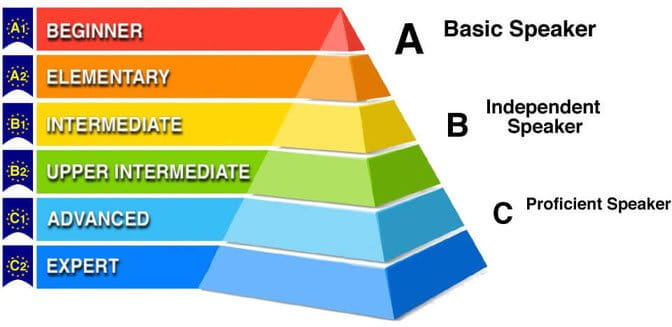
What are the syllabus and outline?
Levels A1 and A2: These tests assess basic communication skills and provide opportunities to practice using them in various everyday contexts. For example, personal, family, study, work, shopping, reading, writing, beginner-level discussions, and other simple general activities. You can understand short, simple texts and day-to-day talks with the help of basic grammar, vocabulary, and expressions.
Levels B1 and B2: These are a bit more difficult. It checks your writing ability in moderate or intermediate subjects. You will comprehend texts and navigate situations in diverse real-life scenarios. You are competent to deal with most situations faced while traveling. It also measures a person’s talent in expressing thoughts on different topics. You can produce clear, detailed text on various subjects.
Levels C1 and C2: The test certifies the candidate is competent in the language and has advanced skills. The tests assess your capability to understand complex texts and communicate fluently. You will understand and produce an extended, coherent text. You can also read and write about complex topics in diverse fields and understand almost everything, including idiomatic expressions.
Can I take any level?
Yes. You can take a higher-level language exam without getting a lower-level diploma.
For example, if you feel your level is B1, you do not need to take or pass an A1 or A2 exam before that. In that case, you can skip A1 and A2 and take B1 directly.
Types of DELF exam
There are five different types of DELF exams. All these diplomas are valid for life.
- Diplôme d’études en langue française, DELF (for all age groups).
- Diplôme approfondi en langue française, DALF (for all age groups).
- Diplôme d’études en langue française for children (aged 7 to 11), PRIM.
- Diplôme d’études en langue française for teenagers (11 to 17), JUNIOR.
- Diplôme d’études en langue française for professionals, PRO.
(i) DELF Tout Public (DELF TP)
The “tout public” version of French language studies is restricted to adults. Candidates aged 17 and above can appear for DELF Tout public.
It has four levels: A1, A2, B1, and B2. These general French exams cover communication skills and practical language use through reading, writing, speaking, and listening.
(ii) DALF Tout Public (DALF TP)
The DALF comprises two levels: C1 and C2. The target audience is the same as the DELF TP, i.e., candidates over 17.
These advanced levels focus on complex language skills. It is suitable for academic and professional contexts and those who aim to gain mastery.
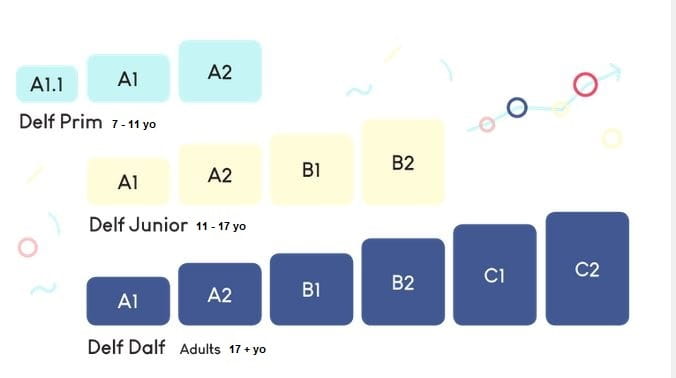
(iii) DELF Prim (7-11)
DELF Prim examinations are also available for schoolchildren. Children between the ages of 7 and 11 can take the test.
As far as levels are concerned, there are only three, namely A11.1, A1, and A2. They designed the tests for young learners to evaluate their beginner’s French language skills.
The exam topics suit the age group’s interests, such as the close environment (family, personal details, friends, interests), everyday situations, etc.
(iv) DELF Junior/Scolaire (11-17)
The Junor or Scolaire have two types — DELF “junior” and the DELF “scolaire”.
The DELF junior version is ideal for teenagers between 11 and 17.
The junior’s version motivates young people to learn French. This exam is mainly for learners in secondary and higher secondary schools.
There are four levels: A1, A2, B1, and B2 (beginner to independent users). The adolescent candidates can check their understanding of French in real-life and academic contexts.
Differences between “Junior” and “Scolaire”
Both are exactly alike. The administration is the only thing that differs.
For example, if the French embassy and local schools have some arrangements, you can take DELF for schools (DELF Scolaire).
If there is no such understanding, then DELF Junior.
(v) DELF Pro
The target audience is professionals and adults in a work context. DELF Pro has four levels: A1, A2, B1, and B2.
They developed these exams for individuals to measure their ability to use French in work-related situations. It is for learners who wish to integrate into the environment of the French-speaking world.
France Education International has discontinued DELF Pro, so taking this exam is no longer possible. Instead, consider taking Tout Public (A1 to B2), which is similar.
Test structure
You can apply for different DELF and DALF levels corresponding to the CEFRL: A1, A2, B1, B2, C1, and C2.
You should be familiar with the exam structure of each level before taking it. Let’s explore more!
This test requires what skills?
The two exams consist of four essential sections. The number of tasks, duration, and difficulty level vary. These four compulsory skill sets are:
- Writing expression (Production écrite)
- Reading comprehension (Compréhension écrite)
- Listening comprehension (Compréhension orale)
- Speaking expression (Production orale)
Breakdown of each level and duration
The section will show the breakdown of every level’s task, the number of questions, and times.
Level 1 (A1) — (i) Reading comprehension (30 minutes) (ii) Written expression (30 minutes) (iii) Listening comprehension (20 minutes approx.) (iv) Oral expression and interaction (10 minutes, including 5 to 7 minutes for preparation). Total time for the group test: 1 hour 20 minutes.
Level 2 (A2) — (i) Reading comprehension (30 minutes) (ii) Written expression (45 minutes) (iii) Listening comprehension (25 minutes approx.) (iv) Oral expression and interaction (10 minutes, including 6 to 8 minutes for preparation). Total time: 1 hour 40 minutes.
Level 3 (B1) — (i) Reading comprehension (45 minutes) (ii) Written expression (45 mins) (iii) Listening comprehension (25 minutes approx.) (iv) Oral expression and interaction (10 minutes, including preparation time 15 minutes). Total time: 1 hour 55 minutes.
Level 4 (B2) — (i) Reading comprehension (1 hour) (ii) Written expression (1 hour) (iii) Listening comprehension (30 minutes approx.) (iv) Oral expression and interaction (20 minutes, including preparation time 30 minutes). Total time: 2 hours 30 minutes.
Level 5 (C1) — (i) Reading comprehension (1 hour) (ii) Written expression (2 hours 30 minutes) (iii) Listening comprehension (30 minutes approx. including 10 minutes break) (iv) Oral expression and interaction (30 minutes, including preparation time 1 hour). Total time: 4 hours.
Level 6 (C2) — (i) Listening & Speaking (30 minutes, including preparation time 1 hour). (ii) Reading comprehension and writing (3 hours 30 minutes). Total time: 4 hours.
Syllabus & Curriculum
The subject is quite extensive and requires extensive study. Still, you do not need to worry. With a proper study plan and guidance, you can pass and achieve a higher level of proficiency.
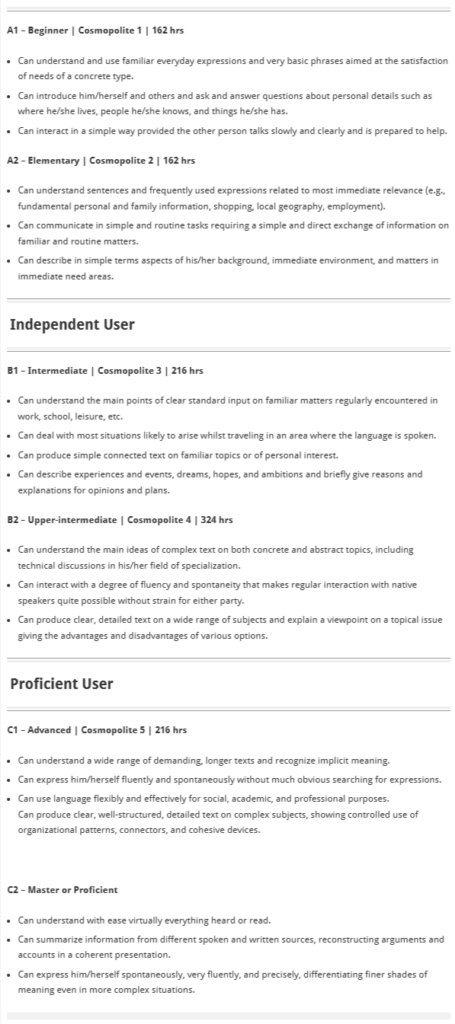
You can also check the complete curriculum level-wise on the official website.
The scoring system & passing mark
Although the difficulty differs, the DELF scoring is similar at each level: A1, A2, B1, B2, C1, and C2.
There are four tests comprising reading, writing, listening, and speaking. Each of these sections has 25 marks. So, there is a maximum score of 100 points.
To pass a particular level, a candidate must achieve a minimum of 5/25 in each section and a minimum of 50/100 overall.
There is either a pass or fail grade at the end.
When do you get your results and certificate?
The result date varies from one center to another. Check the results on their website or social media. Once they announce the results, you can collect them from the office.
Candidates must visit or send a representative to their main office with the relevant documents to collect certificates.
All candidates get two certificates after successfully clearing the DELF and DALF. The Attestation (Marksheet) and Diplôme (Passing Certificate).
The time varies depending on the testing center. Getting the attestation and scores takes roughly 1-2 months. You will get the final diploma 3-4 months after the examination.
They do not send soft or hard copies. Thus, the exam will be collected from the testing center. They won’t get a certificate or marks if one does not pass the exam.
Validity of the DELF
Unlike different variants of TCF and TEF, which have two years of validity, the DELF diploma never expires. Once you pass, you can use it for a lifetime with no restrictions.
This is a benefit if you want to learn French to advance your career or long-term goal. So, you don’t need to retake the test to prove your language competency.
These certifications are valid for life. Yet, a few may have specific rules about its acceptance.
For instance, some organizations need recent diplomas issued within the last 2-5 years to be officially recognized. If so, you may need to retake the examination.
Still, most acknowledge and accept DELF scores and credentials, no matter when you took the test.
DELF 2025 Test Dates
They conduct DELF and DALF exams several times yearly at hundreds of approved test centers worldwide. They usually organize nearly 8 to 10 times in January, February, March, May, June, September, October, November, and December.
The specific test dates may differ depending on the country and the authorized testing center.
They usually announce the dates 2-3 months in advance. In most cases, candidates must sign up for the next exam one month in advance.
You can check the official website of your nearest test centers to find the upcoming test dates.
DELF Test Dates 2025 in India
The Alliance Française Network conducts the tests in March, June, July, September, and December. They also have separate dates for DELF Prim and Junior.
| Exam Period & Type of Test | Exam Dates | Registration Dates |
|---|---|---|
| March 2025 (Tout Public) | 24/03: A1, 25/03: A2, 26/03: B1, 27/03: B2, 28/03: C1, 28/03: C2. | From 17th February 2025 to 07th March 2025 |
| June 2025 (Tout Public) | 16/06: A1, 17/06: A2, 18/06: B1, 19/06: B2, 20/06: C1, 20/06: C2. | From 12th May 2025 to 30th May 2025 |
| July 2025 (DELF Junior) | 23/07: B1, 24/04: A2, 25/07: A1 | From 10th July 2025 to 18th July 2025 |
| September 2025 (Tout Public) | 15/09: A1, 16/09: A2, 17/09: B1, 18/09: B2, 19/09: C1, 19/09: C2. | From 04th August 2025 to 22nd September 2025 |
| December 2025 (Tout Public) | 08/12: A1, 09/12: A2, 10/12: B1, 11/12: B2, 12/12: C1, 12/12: C2. | From 1st November 2025 to 14th November 2025 |
| December 2025 (DELF Junior) | 02/12: A1, 09/12: A2, 09/12: B1 | From 28th October 2025 to 22nd November 2025 |
| December 2025 (DELF Prim) | 02/12: A1.1, A1, and A2 | From 16th August 2025 to 16th September 2025 |
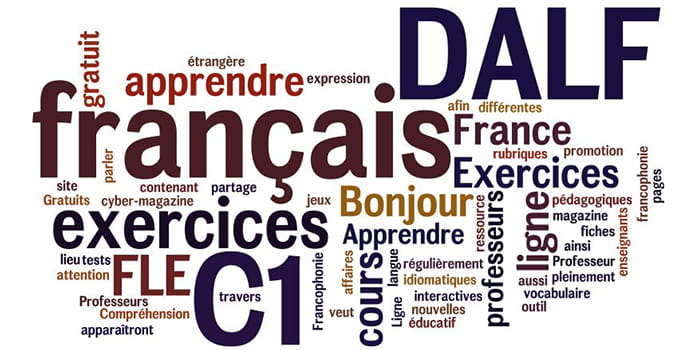
DELF Examination Fee
The cost of the DELF exam is subject to variation. It relies on the diploma level and the city where you register.
Candidates can check at the test center in the country where they intend to take the exam to find out the exact cost of the selected diploma.
For example, the price is $135 to $245 in the USA. But it ranges from Php 3,150 to 4,700 in the Philippines.
DELF fee in India
The DELF and DALF fees in India vary. They depend on whether you are an internal or external student, and the price also differs according to level.
The internal students comprise those studying at one of the Alliance Française branches or candidates from partner institutions. The cost is often 30% to 40% higher.
- DELF A1 (Internal – Rs 6,612 and External – Rs 10,172)
- DELF A2 (Internal – Rs 7,120 and External – Rs 10,172)
- DELF B1 (Internal – Rs 7,944 and External – Rs 12,036)
- DELF B2 (Internal – Rs 7,944 and External – Rs 12,036)
- DALF C1 (Internal – Rs 8,800 and External – Rs 13,334)
- DALF C2 (Internal – Rs 8,800 and External – Rs 13,334)
DELF Test centers across the world
As of January 2025, Alliance Française and its partner network conduct the DELF exams in over 1,200 testing centers in over 175 countries.
The number of candidates exceeds 40,000 yearly, and it keeps rising year after year.
In addition to Alliance Française centers, hundreds of universities, embassies, consulates, and language schools are official exam centers.
DELF Exam Centers in India
Alliance Française organizes the DELF exam at various centers and cities.
They conducted the tests in dozens of cities and AF branches.
This includes Ahmedabad, Bengaluru, Bhopal, Bhubaneswar, Chandigarh, Chennai, Delhi, Dehradun, Gurugram, Hyderabad, Jaipur, Kolkata, Lucknow, Mumbai, Panjim Pondichéry, Pune, Udaipur, and Trivandrum. Remember that not all centers conduct all tests, so check the official websites for upcoming tests.
All prices mentioned above do not include taxes and are valid for only 2025 sessions.

What are the eligibility criteria?
There are no specific requirements for taking the DELF exams. One exception is that you should be a citizen of a country where French is not the official language.
Age restrictions vary depending on the exam version you plan to take. For example, the minimum age to take DELF DALF Tout Public is 17+.
In contrast, school-going children’s age limit is on the lower side. For instance, 11 to 17 is for Junior, and 7 to 11 is for Prim.
Registration Process
You can register for the DELF exam online, which is a simple process.
Alliance Française and its affiliated centers manage the exam in most countries, and the French embassy and consulates assist in its operation.
Candidates must register for the exam at an approved center within the specified time for each test schedule. You cannot apply after the deadline, so it is vital to keep track of dates.
In India, Alliance Française and its partner centers conduct the exam. You can contact your nearest center, which will help you register.
You can complete the registration form online or in person with the correct information, like personal details, address, and level. You can check the sample form in the image below.
Once you have filled out the form, submit the fee or transfer it to the bank account mentioned by the center where you are taking the test. After submitting the application form and payment, you are all set!
Remember that registration is on a first-come, first-served basis. Since the number of seats is limited, apply at the initial dates.
What to carry on the examination day?
It’s compulsory to carry one of your government-approved photo identity proofs. You also need a hard copy of your receipt on the test day to confirm your identity.
There are two separate timings for oral and written exams, and there is a small gap between the oral and listening exams. Check the website’s test timings for oral and written exams a few days in advance.
Please note that the exam will begin at the scheduled time. The examiners won’t permit latecomers to sit for the exam.
How do I prepare for the DELF test?
French is a famous language that is widely taught and spoken across the world.
As a result, plenty of resources are available to help you learn the language. This includes podcasts, apps to learn French, books, audio lessons, and videos.
Most of these study materials are helpful. Yet, it’s vital to have discipline, motivation, and a solid plan in place if you want to pass various levels of DELF.
There are no shortcuts to mastering French. Memorizing countless tenses, words, connectors, and irregular verbs requires time and effort.
The tricky pronunciation and accents require lots of practice. To improve your learning experience, supplement your formal French classes with other verbal approaches. E.g., listening to podcasts for French learners, watching TV series, and practicing conversational skills.
One of the best ways to learn French is to study with a teacher. You can take private lessons from a tutor or enroll in an institute near you. With the growing demand for French studies, many options are available.
If preparing for the DELF exam, check official websites for sample papers and the previous year’s questions. There are also many books available to help you prepare.
If you’re looking for high-quality, reasonably priced, and results-oriented offline and online French language courses, consider enrolling in LanguageNext.
Our programs are designed to meet the needs of students of all ages and skill levels. In addition to DELF and DALF, we offer French courses for TEF Canada, TCF, Telc, etc.
Should you take the DELF DALF exam?

You may want to know how much you studied and your French. This can happen when you need a specific level for a visa application in France, Canada, and Francophone nations for study, work, or residency.
You may want to show interviewers how well you know this language for a job related to French, so you desire to enhance your French skills for employment prospects or career shifts.
There are many advantages to learning French. Regardless of your reasons, DELF can add significant value to your C.V. and help you outperform competitors.
This is valuable because of its many test centers, frequent schedules, lifetime validity, and globally accepted diplomas. Putting effort into achieving more in your personal, academic, and professional lives is worthwhile.
Do you plan to take the DELF exam?
If you have questions, I’d love to hear what you say in the comments!
Most Common Frequently Asked Questions
-
What is the DELF used for?
The DELF examination is an international French diploma recognized and accepted worldwide. It certifies candidates’ degrees of proficiency in the French language.
-
Who can take the DELF exam?
Anyone 17 years old or above and not a native speaker from a French-speaking country can take the test. The age criteria for young learners are 11 to 17 years for Prim and 11 to 17 for Junior.
-
How many levels are in the DELF exam?
DELF adheres to the CEFR model, and thus, it has six levels. It comprises A1, A2, B1, B2, C1, and C2. A1 is the easiest, and C2 is the most difficult.
-
Is it worth taking the DELF?
Absolutely. DELF is the most valuable French diploma, especially for French language jobs or personal growth. It can also be hugely helpful if you go to Francophone countries for study, work, or immigration.
-
Is the DELF exam hard?
No. DELF is neither easy nor hard. The difficulty level depends on your preparation and level. So, the same level can be easy for someone yet very difficult for another person. Following the correct technique, advice, study, and regular practice can help you succeed with flying numbers.
-
What level of DELF should I take?
That depends on your goal. For example, if you want to gain French nationality, aim for at least A2. However, if you need French skills for career prospects and jobs, B2 is usually the minimum requirement. If your objective is jobs for French interpretation, C2 is ideal.
For hobbies and interests, achieve whatever you wish and find it attainable.
-
Where do I give DELF?
Alliance Française and its associate network offer the DELF test in over 1,200 testing centers in over 175 nations. Visit the official site for information about your nearest center.
-
Can the DELF exam be taken online?
No. DELF is an offline test. It is conducted only at the designated exam centers. You can register online to take the test in France or elsewhere. You do not need to be physically present to apply for the test.
-
How do I pass the DELF exam?
DELF test comprises 4 tests with equal 25 marks. To pass the test, candidates need an overall score of 50% or more in combined reading, writing, speaking, and writing. You also need a minimum of 5/25 in every section.
-
What level of French do I need to work in France?
If you want to live in France or any Francophone place, you need a higher level of fluency for a comfortable stay. C1 or C2 are desirable levels for professional objectives. And for personal reasons, at least target B1.
-
Do I need a DELF to study in France?
The conditions vary from one university to another. However, DELF B1 is commonly considered the minimum level for candidates wishing to enter French academics. Some also ask for B2.
-
Do I need a DELF or TCF/TEF in Canada?
DELF and DALF are accepted across Canada for various purposes. However, if your goal is permanent residency, you must appear for one of the 4 exams — TEF Canada, TEFAQ, TCF Canada, and TCF Québec.
-
How long is the DELF score valid?
DELF score and diploma never expire. Once you earn it, it is valid for life.
-
How do I apply for the DELF exam?
French learners can apply online. You must complete and submit the form. You need the required identity card (e.g., passport, Voter’s I-card, driver’s license, etc.). Finally, pay the fee and submit the application form.
-
How long does it take to study for DELF?
That is subjective and depends on your approach, dedication, and effort.
For example, it usually takes 18 to 24 months to cover B2 and 24 to 36 months for C1 or C2 levels. However, if the goal is A1 or A2, you can achieve it in 3-9 months. -
Which French certification is best?
The best is subjective and depends on your goal and needs. Still, DELF is the most popular and widely used French language test.
-
Will the written portion of the exam be typed or handwritten?
The DELF/DALF exam is conducted on paper. Please bring your pen.
-
What should I bring to the exam?
Candidates must leave their belongings in a separate room during the exam. They can only bring a hard copy of their approved photo ID, the DELF-DALF Convocation Mail, and a pen into the exam room. Cell phones and smartwatches are not permitted. Candidates may access their belongings only during the wait time between the group exam and the preparation for the spoken exam.










